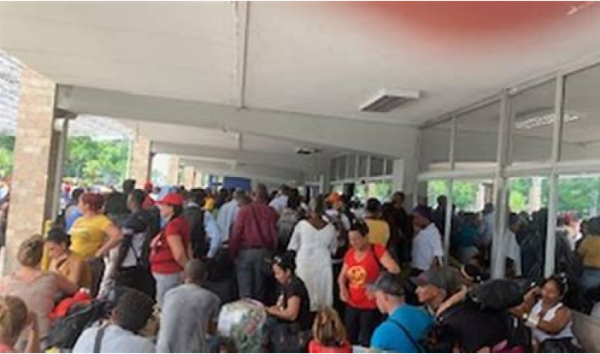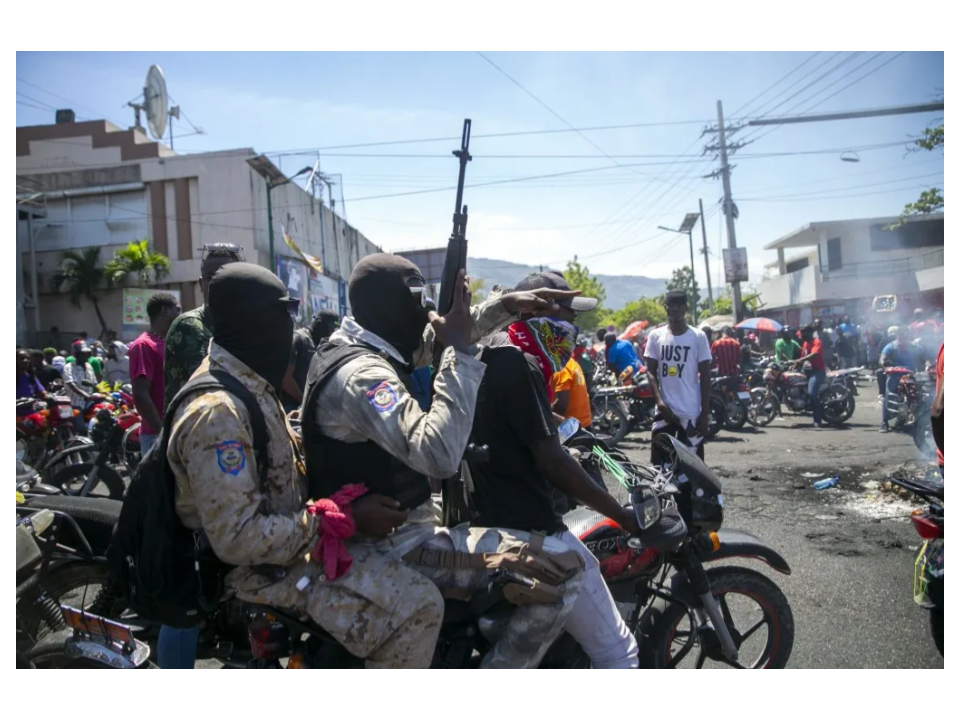On Thurs., Mar. 19, the first chartered flight for Americans leaving Haiti touched down at Miami-Dade Airport. This came after a U.S. Embassy press release and the evacuation order that asked all Americans to prepare to leave Haiti as soon as possible.
So, as the War in Ukraine has reached two years of full combat, and the Israeli war with Hamas surpasses its fifth deadly month, what is going on in Haiti, and what is being done to both stop and remember this deadly crisis?
According to Dr. Jen Ziemke, an associate professor of Political Science who teaches courses in international politics, not enough. Ziemke stated, “The international community and the Biden presidency is overwhelmed by Ukraine, Palestine, Taiwan, etc, but this is far closer to the United States, and 1,000 plus Americans are still in the country as well.”
How we got here
Last week, statistics revealed there were roughly 200 major gangs in Haiti, of which the two largest, G9 and G-Pép lead coalitions of smaller gangs, in combination with political forces in the nation. On the whole, G9 often allies with the Tèt Kale Party, which until 2021 was the party of the president and prime minister of Haiti. In opposition to this coalition, G-Pép often aligns with opposition forces to exploit anti-Tèt Kale sentiments.
Though these gangs have been in existence for years, the first turning point seemed to have occurred with the assassination of President Jovenel Moïse in 2021. A mercenary group made up of Colombians and Haitian-Americans executed what their defense attorneys state was an “arrest warrant” by the government of Haiti, though allegedly these papers came instead from Haitian-American businessman Christian Emmanuel Sanon. Regardless, in the arrest Moïse was killed.
His death left the door open for the newly appointed Prime Minister Ariel Henry to take office and assume the acting presidency. In a reversal of his predecessor’s close ties to certain gangs in Haiti, Henry met with Kenyan representatives in February. Together, they discuss an international peacekeeping mission to fight the gangs, which enraged them, encouraging a broad alliance to form against the government.

When returning from his foreign liaison, the Toussant Louverture International Airport was seized by several gang members, who closed the airport to his aircraft. In exile as of Mar. 6, President Henry has been staying at an undisclosed location in Puerto Rico, with Haitian and American forces ensuring his security.
As well as taking over infrastructure in the country, gangs broke into at least two federal prisons, releasing 4,000 prisoners to cause chaos in the nation. To avoid the violence, thousands have become refugees surging into the neighboring Dominican Republic.
Since Feb. 29, multiple international organizations have begun to assess the situation to begin bringing aid to the nation. According to the United Nations’ OCHA aid organization, there are 362,000 displaced people inside Haiti, as well as $340 million in aid required to solve now rampant food shortages. Luckily, in the same report, a preemptive $20 million was promised in aid from the EU.
Neighbors of Haiti, part of the CariCom (Caribbean Community) all have reached out to support an interim government council, with legislators being selected from a list curated by powers still left in the country, both gangs and political parties.
When reflecting on the issue unfolding, Ziemke stated “Not that far from our borders do we have a failed state, if not the most failed state.”
So, what is there to do as danger and violence engulf Haiti? In a confusing world where criminals are also combatants, and politicians are assassinated in, or abandoning their posts, we can “remember Haiti” Ziemke says. To save lives, much more support is needed, and we are only beginning to get on the right track, to save the lives of our southern neighbors, as well as fellow Americans who were, until now, stuck on their own.



